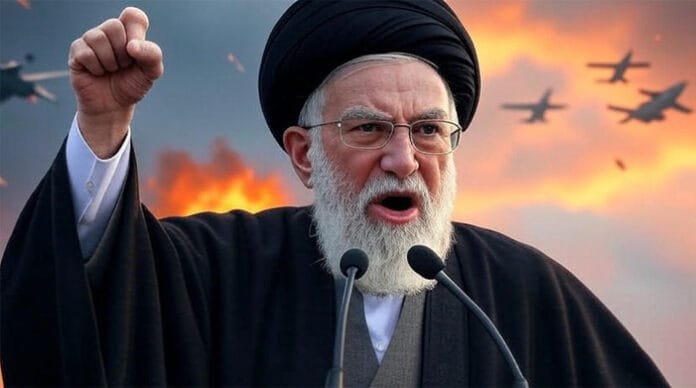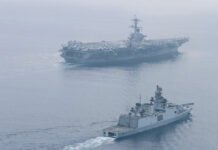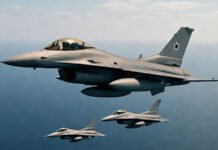INVC NEWS
Tehran, Iran — As tensions in the Middle East reach a boiling point, Iran’s Supreme Leader Ayatollah Ali Khamenei issued a chilling warning to Israel on Wednesday, labeling the recent Israeli military strike on Iranian territory a “grave miscalculation.” Addressing the Iranian nation during a televised speech, Khamenei condemned the attack and vowed that Israel will be held accountable for what he termed as an act of war against the Islamic Republic.
“Era of Hit-and-Run Is Over,” Declares Iran
In a strongly worded address that echoed across both the Iranian airwaves and global media, Khamenei stated, “The Zionist regime must realize the era of hit-and-run operations is over.” He emphasized that retaliation is inevitable, promising that Iran will never capitulate under pressure or foreign intimidation.
This direct confrontation follows escalating conflict between the two long-time adversaries, with regional observers warning that the current spiral could ignite a broader Middle Eastern crisis.
Israel’s Attack and Iran’s Pledge of Retaliation
On Tuesday evening, reports confirmed that Israeli forces launched precision strikes targeting what they claimed were military infrastructure and weapons depots within Iran’s borders. Though the Israeli government has not officially acknowledged the attack, senior defense sources suggested it was a preemptive strike aimed at halting Iranian drone operations allegedly targeting Israeli cities.
Iranian officials quickly pushed back against these claims, asserting that the sites hit were non-military and accusing Israel of violating international law. Iranian Foreign Ministry spokesperson Nasser Kanaani called the move “an unprovoked act of aggression.”
Ayatollah Khamenei’s response was swift and unequivocal: “They made a mistake, and they will regret it. We will not rest until justice is done.”
Trump’s Involvement Adds Fuel to the Fire
Former U.S. President Donald Trump, during a Tuesday night press briefing, added further heat to the unfolding crisis by urging Iran to surrender and cease its military ambitions. Trump’s statement, widely circulated in Iranian media, was dismissed as “imperialist rhetoric” by senior Iranian advisers.
Khamenei responded directly to the comments: “No threat from any foreign leader, past or present, will deter Iran’s resolve. We are not a nation that bows to pressure.”
Military and Political Repercussions
Following the speech, Iran’s Revolutionary Guard Corps (IRGC) was placed on high alert, and defense analysts are now speculating on what form Iran’s retaliation might take. Possible scenarios include:
Missile strikes on Israeli territory
Cyber warfare against Israeli infrastructure
Covert operations via proxy militias in Lebanon, Syria, or Iraq
Targeted attacks on Israeli shipping vessels in the Gulf
Regional security sources have reported increased movement of Iranian-backed forces in southern Lebanon and Syria, signaling potential fronts for asymmetric retaliation.
Israel’s Response: Tensions Rise in Tel Aviv
Israeli Prime Minister Benjamin Netanyahu convened an emergency session with military chiefs and cabinet ministers late Tuesday night. Though the Israeli government remains tight-lipped on potential response strategies, Israeli Defense Forces (IDF) Chief of Staff Herzi Halevi warned, “We are ready for any scenario. Israel will not tolerate existential threats.”
Civil defense drills have been intensified across Haifa, Tel Aviv, and Ashdod, while Iron Dome batteries were repositioned to intercept potential Iranian missile strikes. Israel has also increased surveillance over Hezbollah activities in the north, anticipating coordinated multi-front threats.
Global Community Calls for Restraint
As the situation worsens, international powers including the United Nations, the European Union, and the Gulf Cooperation Council (GCC) have urged both Iran and Israel to exercise restraint and avoid actions that could plunge the region into a full-scale war.
UN Secretary-General António Guterres issued a statement: “This is a time for de-escalation, not provocation. All parties must commit to diplomacy and peace.” However, with neither side showing signs of backing down, diplomatic routes seem increasingly fragile.
Economic Impact: Oil Prices Surge Amid War Fears
The conflict’s ripple effects have already begun to destabilize global markets. Brent crude oil surged past $94 per barrel as investors reacted to fears of disrupted oil shipments through the Strait of Hormuz, a critical chokepoint for global energy supplies.
Market analysts are warning that any escalation could push oil above $100, affecting global inflation rates, energy prices, and supply chains worldwide. The Tehran Stock Exchange dropped sharply on Wednesday, while defense contractors and energy stocks surged in Wall Street’s early trading hours.
Iran’s Public Sentiment: A Nation Ready for Resistance
Across Iranian cities including Mashhad, Shiraz, Isfahan, and Qom, thousands rallied in support of Khamenei’s speech, chanting slogans against Israel and the United States. Government-organized demonstrations reflected nationalistic fervor, with banners reading: “Israel will fall,” and “Iran will never surrender.”
Pro-government media outlets amplified Khamenei’s message, branding Israel as a “terrorist regime” and calling for united resistance across the Islamic world. Iranian clerics and politicians have echoed the Supreme Leader’s stance, urging full military and strategic retaliation.
What Comes Next: A Region on the Brink
As Israeli warplanes patrol the skies, and Iranian missile units reportedly reposition within striking range, the next 48 to 72 hours could determine whether the region tips into an open military conflict or halts at the edge.
Key geopolitical players including Russia, China, Turkey, and Saudi Arabia are closely watching the developments. Any misstep could draw multiple actors into a regional conflagration with unpredictable consequences.
What remains certain, however, is that neither Iran nor Israel appears willing to back down, setting the stage for a potentially historic confrontation.
















